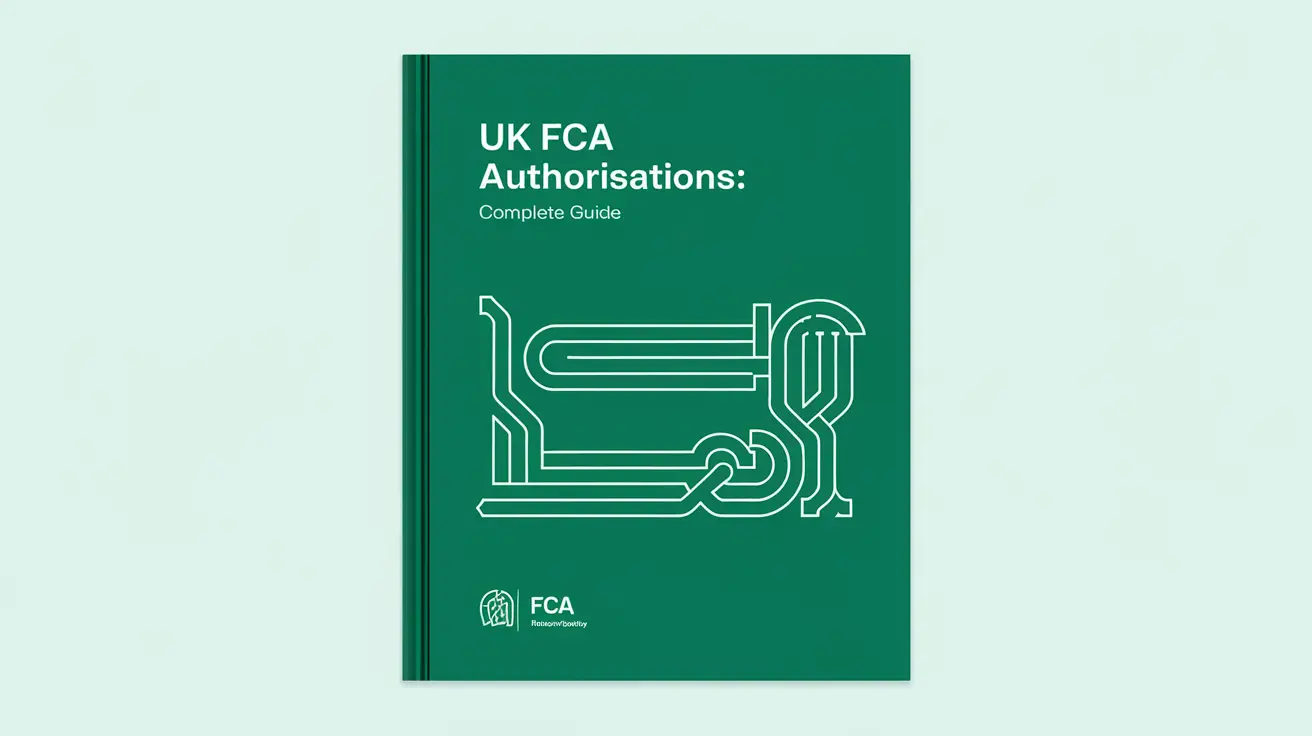
For businesses in the financial services sector, obtaining FCA authorisation is not just a regulatory checkbox, it’s a game-changer. It acts as the gold standard of trust and credibility, opening doors to a broader market and instilling confidence in consumers. The Financial Conduct Authority (FCA), the UK’s regulatory body, ensures that financial organisations operate transparently, honestly, and in the best interests of their clients. But what does FCA authorisation truly mean for businesses, and why is it so significant?
In today’s competitive financial landscape, building trust and staying compliant are essential. Holding FCA authorisation signals that a business adheres to strict regulatory standards, protecting customers and safeguarding market integrity. It also provides a competitive advantage, enhancing reputation, customer retention, and growth opportunities. This article unpacks the meaning, benefits, requirements, and challenges of obtaining FCA authorisation, exploring its real-world impact on businesses in the UK regulatory framework.
Whether you’re a new service provider or an established firm looking to expand, understanding the implications of FCA authorisation is crucial. Read on to uncover the essentials, from application processes to compliance responsibilities, and learn how this regulatory badge can elevate your business.
What is FCA Authorisation and Who Needs It?
FCA authorisation is a regulatory approval issued by the Financial Conduct Authority, which allows businesses to carry out specific regulated activities in the UK. The FCA’s mission is to ensure markets work effectively, protect consumers, and maintain financial system integrity. Any business engaging in activities such as lending, insurance, investments, debt counselling, or payment services must obtain FCA authorisation to operate legally.
The scope of FCA authorisation spans various financial industries, such as:
- Banking and credit services
- Insurance providers and brokers
- Wealth and investment management
- Peer-to-peer lending platforms
- Consumer credit firms
- Payment and e-money institutions (including Registration)
Without this authorisation, operating such services can result in severe penalties, legal consequences, and reputational damage. For businesses seeking long-term growth, meeting FCA compliance is not optional—it’s a necessity that forms the foundation of their legitimacy.
Benefits of FCA Authorisation for Businesses 
- Credibility and Consumer Confidence
Possessing FCA authorisation immediately signals to consumers that your business is trustworthy and operates ethically. In a market where fraud and financial misconduct are risks, the FCA badge provides a layer of reassurance to clients. It demonstrates your commitment to transparency, standards, and consumer protection.
- Competitive Advantage
FCA-regulated companies enjoy better reputations compared to non-authorised firms. This credibility often translates into greater opportunities to attract high-value clients, secure partnerships, and build long-term relationships with investors and other financial institutions.
- Access to Market Opportunities
Firms with FCA authorisation can explore a greater number of business opportunities. Some sectors and services are only accessible to FCA-regulated entities, enabling authorised businesses to tap into high-growth markets.
- Legal and Regulatory Compliance
Maintaining your FCA authorisation ensures you’re adhering to UK financial regulations, minimising the risk of legal action or enforcement penalties. It also demonstrates corporate responsibility, keeping your operations above board.
- Enhanced Scalability
Businesses with FCA authorisation are better positioned to scale their operations since the credential builds both consumer and stakeholder trust. Potential investors and market participants value compliance, seeing it as an indication of stability and reduced risk.
The FCA Authorisation Application Process
Navigating the FCA application process involves several stages, and preparation is key. Here’s a step-by-step breakdown:
- Know Your Permissions
Firstly, you need to determine which permissions apply to your business. This depends on the specific regulated activities you intend to offer.
- Submit an Application
You’ll need to file an application through the FCA’s Connect system, providing detailed information about your business model, senior management, risk frameworks, and compliance processes.
- Fit and Proper Test
The FCA assesses the fitness and propriety of key individuals, such as directors or compliance officers, to determine if they have the competency and integrity to manage a regulated business.
- Capital Requirements
Certain businesses are required to meet financial thresholds demonstrating their solvency, ensuring they can withstand market fluctuations or operational risks.
- FCA Decision
Once your application is reviewed, the FCA may approve your request, deny authorisation, or seek further clarification. The process can take several months, so meeting requirements efficiently is crucial.
 Common Challenges in the FCA Authorisation Process
Common Challenges in the FCA Authorisation Process
- Complex Regulatory Requirements
The FCA has rigorous standards, and failing to prepare adequate documentation can delay the process or result in rejection.
- Financial Thresholds
Some small firms struggle to meet the FCA’s capital adequacy requirements, posing challenges for startups and micro-enterprises.
- Compliance Management
Creating a robust compliance framework that meets ongoing FCA monitoring expectations is an operational hurdle for many businesses, especially if they lack in-house expertise.
- Costs of Authorisation
FCA authorisation involves application fees, ongoing levies, and compliance costs that can strain a company’s resources, particularly for smaller firms.
Despite these challenges, the long-term benefits of obtaining FCA authorisation often outweigh the short-term obstacles.
FAQs About FCA Authorisation
- What is the Cost of FCA Authorisation?
The FCA charges fees depending on your business type and the complexity of your application. Costs range from around £1,500 for straightforward cases to over £20,000 for complex applications.
- How Long Does it Take to Get FCA Authorisation?
The process typically takes between 6 and 12 months, depending on the completeness of your application and the FCA’s workload.
- Can My FCA Authorisation Be Revoked?
Yes, the FCA can revoke authorisation if your firm breaches its regulatory obligations, fails to maintain consumer protection standards, or becomes insolvent.
- Do I Need FCA Authorisation for Online Financial Advice?
Yes, providing regulated financial advice, even online, requires FCA authorisation. Fintech platforms and robo-advisors are no exception.
- What Happens If I Operate Without Authorisation?
Operating without FCA authorisation is illegal and may result in fines, business shutdowns, or even criminal prosecution.
To Contact Us
Tel; UK 0800 689 0190,
International +44 207 097 1434
Email: info@complianceconsultant.org
If you’d like us to contact you to discuss your specific situation and how we may be able to help,
please provide your contact details using the form below and a member of our team will get in touch.
You may also be interested in;
🔑 UK FCA Authorisations: Complete Guide
What Does FCA Authorisation Mean for Businesses?
Step-by-Step Guide to FCA Authorisation
Businesses That Require FCA Authorisation in the UK
🔑 FCA Authorisation Process Explained
Documentation Required for FCA Authorisation
Common Challenges During FCA Authorisation Process
How to Prepare a Winning FCA Application
🔑 FCA Approved Persons
How to Apply to Become an FCA Approved Person
The Roles and Responsibilities of FCA Approved Persons
FCA Certification Regime for Approved Persons
🔑 Types of FCA Authorisations
Consumer Credit FCA Authorisation: A Step-by-Step Guide
What FCA Authorisation Means for E-Money Institutions
FCA Authorisation for Payment Services Providers
🔑 FCA Registration Fees & Costs
Small Firms vs Large Firms: FCA Authorisation Fee Breakdown
Understanding Ongoing FCA Compliance Costs
Are There Hidden Costs in the FCA Approval Process?
🔑 FCA Handbook Simplified
What Is the FCA Handbook? A Beginner’s Guide
Key Rules in SYSC (Systems and Controls) Regulations
How to Navigate FCA Conduct of Business Rules (COBS)
🔑 How Long Does FCA Authorisation Take?
Average Processing Times for FCA Applications in 2025
Common Delays in FCA Authorisation Processing
FCA Fast-Track Applications for Critical Business Timelines
🔑 FCA Compliance Monitoring Explained
Creating an FCA Compliance Monitoring Plan
FCA Reporting Obligations by Firm Type
Best FCA Compliance Monitoring Software
🔑 FCA Regulatory Updates for 2025
Major FCA Regulatory Changes You Need to Know in 2025
Preparing Your Business for FCA Regulation Changes in 2025
Simple Guide to Understanding FCA ESG Requirements
🔑 FCA Application Rejections
Common Reasons FCA Applications Get Rejected
How to Appeal an FCA Rejection
How to Successfully Resubmit Your FCA Application
1 thought on “What Does FCA Authorisation Mean for Businesses?”
-
Pingback: Businesses That Require FCA Authorisation in the UK
Comments are closed.
